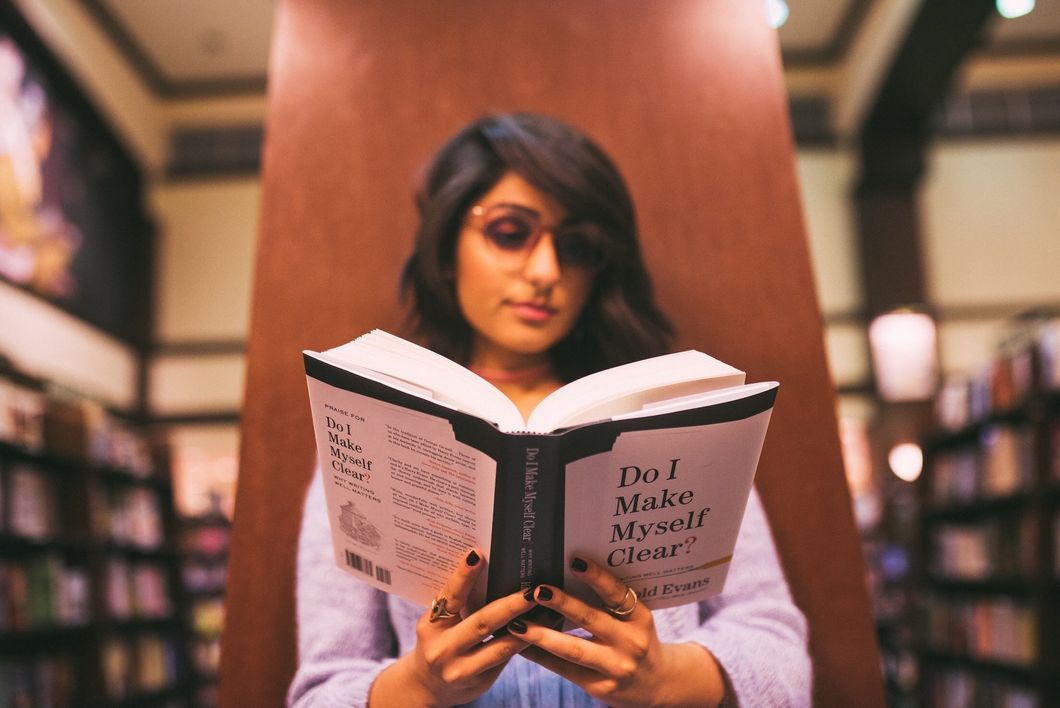I was a liar.
After telling my first-grade teacher that there was a mysterious man outside my bedroom window who would plop himself on a tree branch and eerily rap at the glass each night, my parents were called into an emergency parent-teacher conference that I would be reminded of for Thanksgiving dinners to come.
My mother immediately debunked my story despite my teacher's claims that this was a serious and troubling situation that should be handled with appropriate concern. However, my parents did have some pretty compelling counterclaims. For one, my room did not have a tree outside of it and was located on the second floor, so unless my mystery man was dedicated enough to scale the walls of my suburban home five business days a week (stalkers have to take a break, too, right?), this was just another one of my outlandish tales.
My teacher, still unconvinced, pressed on, but my parents, unamused, offered her another piece of damning evidence: I still slept in my parents' bed. Unfortunately, this rapid rebuttal caused me to lose my only defender in this case as my teacher sided with my parents in branding me with the most dreaded label you could earn in the first grade: a liar.
Thankfully, most people did not take my tall tales too seriously and accredited this habit of mine to simple childhood fantasy. While this was part of it, I soon realized it was much more than that.
My lifelong affinity for reading established my love of preposterous tales, but it was my desire to have my own anecdotes that led to my ultimate branding as a liar. Dissatisfied with the temporary alternate realities that books presented me, I took it upon myself to create my own wonderlands and share them with others to legitimize their existence (years later, we now call these "alternative facts" and "fake news").
Now, my exaggerating days well behind me, I realize that I am, in fact, not a liar but a storyteller instead.
Storytelling is my first love. Manifesting itself in my fascination with creative writing (as well as my passion for journalism), I have consistently proven myself to be a storyteller, despite the misguided approach I took earlier. My favorite part of storytelling lies not in the story itself, but in the reaction, I receive from my lucky audience. Seeing their eyes light up at the climax of my tale is my equivalent of a standing ovation, knowing that I accomplished my goal as a storyteller.
Now, through writing, I realize I want more than just a reaction; I want my words to move people from reaction to action. After getting into trouble multiple times with my teachers and parents, I quickly realized the undeniable power of words and decided I want to use this power for more than just getting my TV privileges taken away.
If I, a fairly rule-abiding and well-behaved six-year-old, was able to so easily abuse this power, I could only imagine what others could do with it. Unfortunately, I have come to the unpleasant realization that people misuse words more often than not. Falsely branding people based on stereotypes, generalizing entire populations based on actions of a few, and the constant name-calling and finger-pointing that makes up our modern media proves to me just how easily words can pit people against each other. However, if mere language can cause riots, I would imagine that it can do the opposite as well: bring people together.
The increasingly polarized political atmosphere of the United States today coupled with the rapid spread of mistruths, courtesy of social media makes it more difficult than ever to find honest journalism. The media, whether we accept it or not, has a profound effect on our perception of the world. To my fellow storytellers, I urge you to use your powers for good -- it can make all of the difference.





 mr and mrs potato head
StableDiffusion
mr and mrs potato head
StableDiffusion










